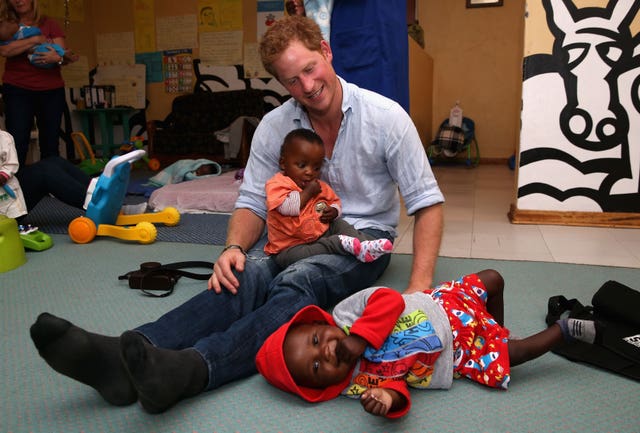Harry takes pride that Sentebale keeps helping children during Covid crisis
The duke co-founded Sentebale in 2006 to help vulnerable children in Lesotho, Botswana and Malawi.

The Duke of Sussex has expressed pride that his Sentebale charity has managed to continue helping children in Africa during a year which “hasn’t been easy” due to the coronavirus pandemic.
Harry co-founded Sentebale in 2006 to help vulnerable children in Lesotho, Botswana and Malawi – including those who are affected by extreme poverty and the HIV/Aids epidemic.
Covid-19 meant that tried-and-tested programmes, which involve people coming together in groups, were ruled out at a time when support for children and young people was “needed more than ever”, Harry and Sentebale co-founder Prince Seeiso of Lesotho state.
They point out, in a joint foreword for the charity’s annual report for the year ending in August 2020, that Sentebale was able to call on its experience in responding to the HIV/Aids epidemic to act as a trusted information source.
The princes state: “Our role as a communicator was a valuable asset, enabling us to reach out and support communities when they needed it most.
“Despite limited resources, we are proud to say that Sentebale stepped up to meet the moment.
“This is a testament to our staff and volunteers – to their creativity, flexibility, and passion.
“As we begin recovering from Covid-19, now is also the time for Sentebale to look to the future and the role we will and must play.”

Harry is now based in Los Angeles with his family, and is no longer a working member of the royal family.
The princes add: “We are fully committed to supporting Sentebale and working with others to help achieve its vision and mission.”
During the year ending in August 2020, Sentebale secured income of £2.39 million, compared with £3.93 million the previous year.
Fundraising costs accounted for £335,000, which was a drop of £1.09 million.
The amount spent on charitable activities was £2.5 million, down from £2.93 million in 2019, as programme activities were affected by national restrictions on movement and gatherings in Lesotho and Botswana due to the pandemic.
Finding ways to cope with a reduced income due to planned events which had to be cancelled since March 2020, and the safeguarding of children and staff have been among the most significant risks during this time.
There has also been a risk of losing touch with the vulnerable children, young people and caregivers who attend the clubs, camps, and caregiver days – which have had to be paused or adapted the pandemic.





